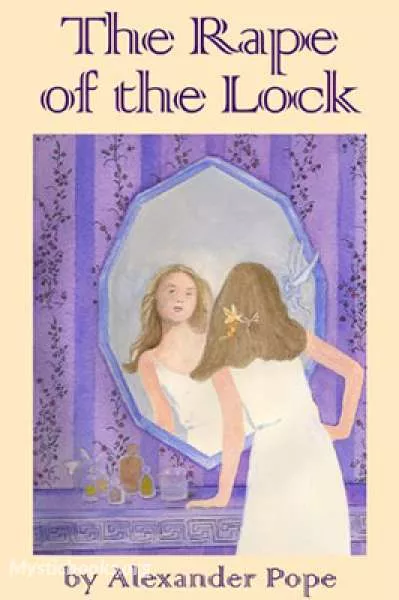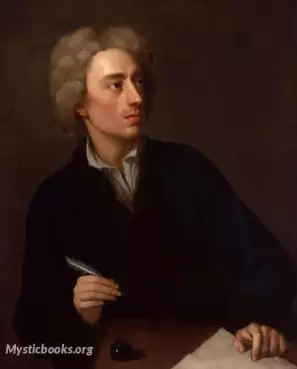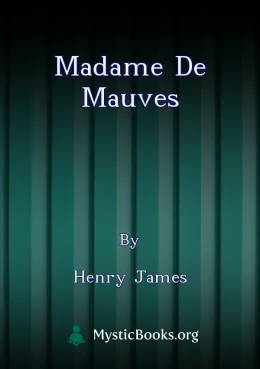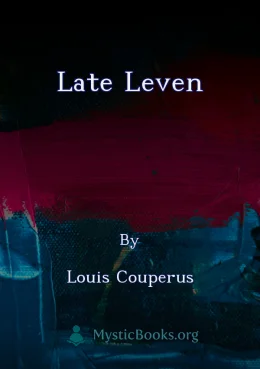
The Rape of the Lock
'The Rape of the Lock' Summary
In the beginning of this mock-epic, Pope declares that a "dire offence" (Canto 1 line 1) has been committed. A lord has assaulted a "gentle belle" (line 8), causing her to reject him. He then proceeds to tell the story of this offence.
While Belinda is still asleep, her guardian Sylph Ariel forewarns her that "some dread event impends". Belinda then awakes and gets ready for the day with the help of her maid, Betty. The Sylphs, though unseen, also contribute: "These set the head, and those divide the hair, some fold the sleeve, whilst others plait the gown" (146–147). Here Pope also describes Belinda's two locks of hair "which graceful hung behind". The Baron, one of Belinda's suitors, greatly admires these locks and conspires to steal one. Building an altar, he places on it "all the trophies of his former loves" (line 40), sets them on fire and fervently prays "soon to obtain, and long possess" (line 44) the lock.
Ariel, disturbed by the impending event although not knowing what it will be, summons many sylphs to her and instructs them to guard Belinda from anything that may befall her, whether she "forget her prayers, or miss a masquerade, Or lost her heart, or necklace, at a ball" (line 108–109). So protected, Belinda arrives at Hampton Court and is invited to play a game of ombre.
The conspiring Baron acquires a pair of scissors and tries to snip off one of her locks, but he is prevented by the watchful Sylphs. This happens three times, but in the end the Baron succeeds (also cutting a Sylph in two although Pope reassures us, parodying a passage in Paradise Lost, that "airy substance soon unites again" [line 152]). When Belinda discovers her lock is gone, she falls into a tantrum, while the Baron celebrates his victory.
A gnome named Umbriel now journeys to the Cave of Spleen and from the Queen receives a bag of "sighs, sobs, and passions, and the war of tongues" (canto 4 line 84) and a vial filled "with fainting fears, soft sorrows, melting griefs, and flowing tears" (line 85–86) and brings them to Belinda. Finding her dejected in the arms of the woman Thalestris, Umbriel pours the contents over them both.
Many people, moved by Belinda's grief, demand the lock back, but the Baron is unrepentant and refuses. Clarissa admonishes them to keep their good humour, but they will not listen and instead a battle ensues with glares, songs and wits as weapons. Belinda fights with the Baron and throws snuff up his nose to subdue him. When she demands that he restore the lock, however, it is nowhere to be found. It has been made a constellation and is destined to outlast the contestants.
Book Details
Language
EnglishOriginal Language
EnglishPublished In
1712Authors

Alexander Pope
England
Alexander Pope was a towering figure in English literature, particularly during the 18th century's Augustan Age. Considered one of the greatest poets of his time, Pope excelled in satire and philosoph...
Books by Alexander PopeDownload eBooks
Listen/Download Audiobook
- Select Speed
Related books

Conquistador by Katharine Fullerton Gerould
Wharton Cameron, a young American engineer, finds himself stranded in Mexico during the tumultuous years of the Mexican Revolution. Adopted by a wealt...

Town Down the River: A Book of Poems by Edwin Arlington Robinson
This collection of poems by Edwin Arlington Robinson showcases his signature style of reflective, often melancholic verse. It includes both shorter po...

Ingoldsby Legends, 1st Series by Richard Harris Barham
The Ingoldsby Legends are a collection of humorous and often macabre verse tales written by Richard Harris Barham under the pseudonym Thomas Ingoldsby...

The Castled Crag of Drachenfels by George Gordon, Lord Byron
The Castled Crag at Drachenfels is a 4-verse poem embedded in Canto 3 of Childe Harold's Pilgrimage by Lord Byron. It is thought to be addressed to hi...

Madame de Mauves by Henry James
Madame de Mauves is a short novel that explores the complexities of love and marriage, particularly in the context of cultural differences. It follows...

Late Leven by Louis Couperus
Louis Couperus's Late Leven is a complex and compelling novel that explores the lives and loves of a group of wealthy Dutch aristocrats in the twiligh...

History of Lady Julia Mandeville by Frances Moore Brooke
History of Lady Julia Mandeville, written by Frances Moore Brooke in the 18th century, explores the societal pressures and personal conflicts that ari...

When Shadows Die by E.D.E.N. Southworth
When Shadows Die is a 19th-century romance novel that delves into the complexities of love, betrayal, and the pursuit of justice. The story follows a...

The Broken Shaft: Tales in Mid-Ocean by Henry Norman
When a luxury liner breaks down in the middle of the Atlantic Ocean, a group of passengers are stranded with only each other for company. To pass the...
Reviews for The Rape of the Lock
No reviews posted or approved, yet...
